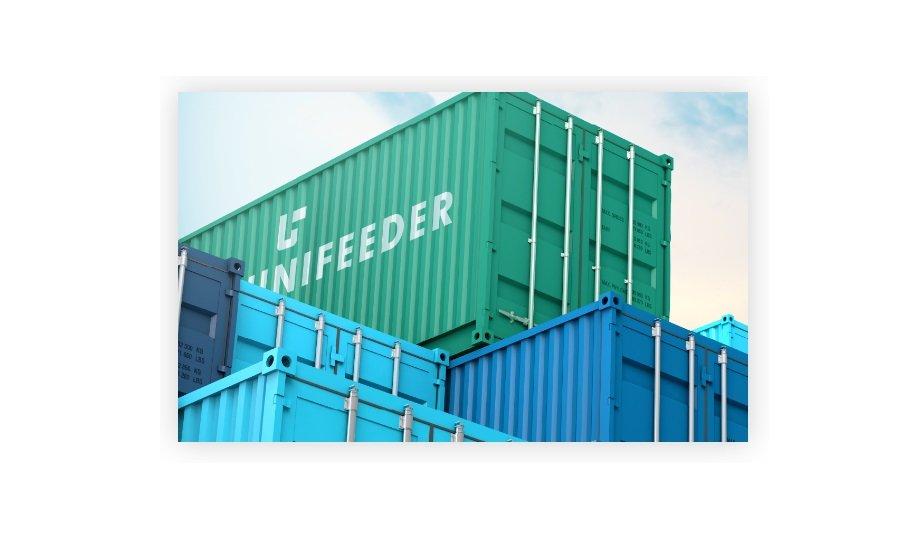From June 1, Unifeeder will offer its customers ‘GreenBox’, a new carbon insetting solution to decarbonise the seaborne sections of their supply chains.
The service is an important element in Unifeeder’s wide-reaching sustainability strategy, which aims to cut the business’ emissions by 47% by 2030 and enable customers to accelerate their Scope 3 reductions.
GreenBox
Unifeeder Group, a key part of DP World’s Marine Services Division, is already running part of its global services using alternative fuels. GreenBox tracks these shipments and generates tokens for each ton of carbon saved.
Customers can purchase the tokens, or ‘insets’, for use in their sustainability reporting and Unifeeder uses the proceeds to buy more alternative fuels. The first tokens have already been successfully generated and can be acquired.
CO2 emission reduction
Renewable fuels based on green hydrogen and advanced biofuels could cut up to 80% of CO2 emissions
The International Renewable Energy Agency (IRENA) estimates that renewable fuels based on green hydrogen and advanced biofuels could cut up to 80% of CO2 emissions attributed to international maritime shipping by mid-century.
Unifeeder’s Chief Commercial Officer, Martin Gaard Christiansen, commented, “We are experiencing increasing demand for solutions to reduce emissions within our customers' supply chains. The use of our GreenBox application supports a decarbonisation cycle that expands the use of alternative fuels and accelerates the decarbonisation process of our industry.”
Clean Cargo Initiative
GreenBox follows the guidelines of the globally recognised Smart Freight Center and its Clean Cargo Initiative and each carbon inset is verified by Bureau Veritas.
Customers will be able to easily acquire their insets by using dedicated online access, which will allow them to manage and track their insets. Unifeeder plans to generate around 25,000 tokens in the introductory phase of GreenBox in 2024.
Use new alternative sources
Unifeeder’s Director of Group Decarbonisation, Christian Hoepfner, stated, “It will be many years before we achieve regulatory-driven price parity between conventional fuels plus their CO2 surcharges and alternative fuels."
"GreenBox will accelerate the industry’s ability to utilise more alternative fuels and crucially support us to use new alternative sources beyond biofuels, such as ammonia and methanol.”
Sustainability initiatives
GreenBox and the use of alternative fuels are just one of Unifeeder’s sustainability initiatives, which also focus on reducing fuel consumption through measures to increase fuel efficiency and optimise vessel operations.
Unifeeder has also started to replace some of its older vessels with methanol-powered ships, due to enter operation by 2026, and expects to cut 15,000 tCO2 emissions annually per vessel. It is also pressing ahead with the implementation of various efficiency-enhancing and fuel consumption-reducing modifications and technologies in its chartered fleet of ships.












